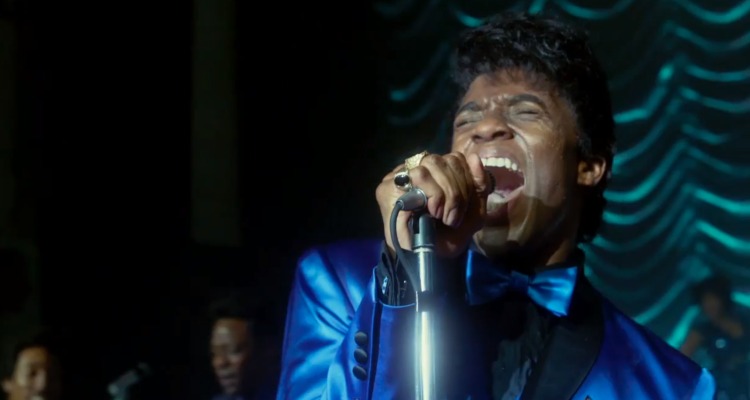 (3.5 / 5)
(3.5 / 5)
For a brief time in the mid 2000s, the ’50s-60s musician biopic was the genre du jour.
The life stories of Johnny Cash and Ray Charles both hit the big screen in little over twelve months; the abstracted travails of Bob Dylan reached us two years later in the form of I’m Not There. Now it seems, in the age of superheroes, that the Godfather of Soul is set to join the club.
Get On Up has all the markings of your run-of-the-mill rags-to-riches story: from James Brown’s inauspicious upbringing by a loving but quickly absent mother (Octavia Spencer) and an abusive, soon-to-depart father (Lennie James) to his time in a correctional facility, all the familiar ingredients are there. Fortunately, Tate Taylor’s film serves them up in mostly fresh and funky style.
Given the biopic is always grounded in the lead performance – be it Peter O’Toole in Lawrence of Arabia or Philip Seymour Hoffman in Capote – and Get On Up’s Chadwick Boseman is more than equal to the task. His James Brown is cool, callow, and incendiary: his presence energizes the whole film, even when it inevitably toys with cliché, as such a familiar tale must do.
Some of Taylor’s choices are less successful, such as Get On Up’s defiantly non-linear approach to storytelling. Opening in 1988 with Brown a wild-haired druggie, the film throws us us back to his childhood momentary before us throwing us midway into Vietnam with Brown at the height of his fame. It’s only once the film settles down into a more regular pattern that we really get into the flow.
With “cameos” from the likes of Little Richard (Brandon Mychael Smith) and a young Rolling Stones – Mick Jagger executive produced – Get On Up confidently generates a feeling of history, carefully giving Brown’s achievements a sense of context. Civil rights and racial equality, however, are mostly supplanted in favor of a portrayal of Brown as a groundbreaking, almost Messianic entertainer.
Bosewick ably recreates almost a dozen of Brown’s best-loved tracks – he may only lip-sync to Brown’s voice but his spot-on dancing more than compensate – but the focus here is less on the singer’s music than his strength of will. Brown’s main obstacle here is not blindness or drugs but isolation: his self-aggrandized status as a (paradoxically) self-made man of destiny almost lays him low.
With his wall-breaking advice to camera and ability to transcend time, Bosewick’s Brown is a goliath figure. Even following a shocking incident in the kitchen, he strong-arms us through on sheer force of personality. Nellan Ellis is pitch perfect as loyal side-man Bobby Byrd, who sets aside his own dreams for the sake of Brown’s greatness, servng as counterpoint to Get On Up’s lionization of its lead.
Despite these faults, though, the film is a passionate and energetic portrayal of the life and career of a crucial figure in 20th Century music. At 139 minutes long, Get On Up never flags or outstays its welcome. It might not reinvent the wheel, but it’s a welcome addition to the likes of Ray and Walk The Line.
